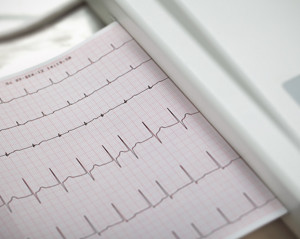- Double Mastectomy May Offer No Survival Benefit to Women With Breast Cancer
- Toxic Lead Found in Cinnamon Product, FDA Says
- Certain Abbott Blood Sugar Monitors May Give Incorrect Readings
- Athletes Can Expect High Ozone, Pollen Counts for Paris Olympics
- Fake Oxycontin Pills Widespread and Potentially Deadly: Report
- Shingles Vaccine Could Lower Dementia Risk
- Your Odds for Accidental Gun Death Rise Greatly in Certain States
- Kids From Poorer Families Less Likely to Survive Cancer
- Tough Workouts Won’t Trigger Cardiac Arrest in Folks With Long QT Syndrome
- At-Home Colon Cancer Test Can Save Lives
Atrial Fibrillation and Memory

Atrial fibrillation is an irregular heartbeat that can lead to blood clots,stroke and even heart failure. An estimated 2-point-7 million Americans have it.Now, brand new research suggests some Afib patients may also be more likely to develop problems with thinking and memory.
The study included participants who were 65 and older with no history of atrial fibrillation or stroke at the start. They were followed for an average of seven years, and took an annual 100-question memory and thinking test.
After excluding people who had a stroke during the study… 5,150 participants were left to evaluate. 552, about 11 percent, developed atrial fibrillation.
The data showed that those with atrial fibrillation were more likely to have lower memory and thinking scores earlier in life than those with no history of the condition.
This suggests people with Afib may be more likely to develop dementia at younger ages.
The researchers are calling for further study to help determine why this decline happens and how to prevent any cognitive consequences for patients with atrial fibrillation.
I’m Dr. Cindy Haines of HealthDay TV with health information for healthier living.










